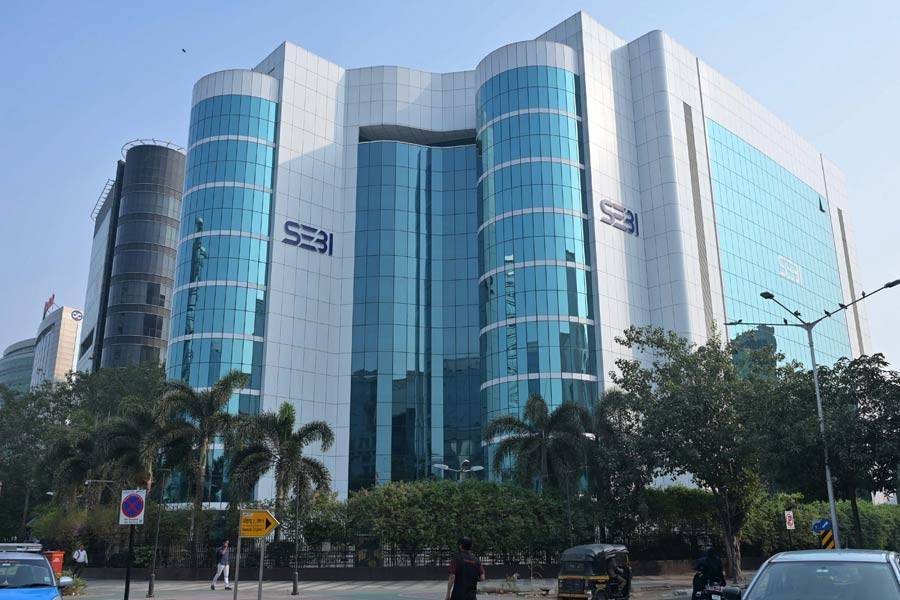The Securities and Exchange Board of India (SEBI) has unveiled a series of significant proposals aimed at strengthening the operational framework for Real Estate Investment Trusts (REITs) and Infrastructure Investment Trusts (InvITs). These measures, detailed in two consultation papers, are designed to increase the flexibility of these investment vehicles while simultaneously ensuring robust protection for investors. As the importance of REITs and InvITs grows in India's financial ecosystem, SEBI's initiatives represent a crucial step toward fostering a more resilient and investor-friendly market environment.
Utilizing Interest Rate Derivatives
One of the standout proposals is the potential allowance for REITs and Small and Medium REITs (SM REITs) to utilize interest rate derivatives, such as swaps, to hedge against fluctuations in interest rates. This strategic shift aims to stabilize cash flows and mitigate risks associated with long-term infrastructure projects. By enabling these trusts to engage in hedging activities, SEBI acknowledges the need for financial instruments that can protect against market volatility. Interest rate fluctuations can significantly impact the profitability and viability of real estate and infrastructure investments, making this proposed change a vital enhancement to the operational capabilities of REITs and InvITs.
Recognizing Fixed Deposits as Cash Equivalents
In addition to interest rate derivatives, SEBI is also proposing the recognition of fixed deposits as cash equivalents in leverage calculations for REITs and InvITs. This clarification is expected to significantly improve financial management practices within these entities. By allowing fixed deposits to be included in leverage calculations, SEBI aims to provide a clearer picture of the financial health of REITs and InvITs, ultimately leading to more informed decision-making. Given the importance of maintaining healthy cash flow in the successful operation of real estate and infrastructure projects, this proposal could be transformative for these investment trusts.
Facilitating Transfers of Locked-in Units
Another key proposal is the introduction of a mechanism that would allow locked-in units for REITs and InvITs to be transferred among sponsors and their affiliates. This initiative resembles existing rules for promoters of listed companies and promotes a "skin in the game" ethos among sponsors. By permitting this level of flexibility, SEBI aims to encourage sponsors to remain invested in the long-term success of their projects while still being accountable to investors. This measure could enhance trust between investors and sponsors, ultimately leading to a more robust investment climate.
Improving Governance Norms for Reporting
SEBI’s proposals extend to the governance norms governing quarterly reporting of InvITs. The suggested changes will mandate that quarterly results accurately reflect the performance of the InvITs themselves, aligning these requirements more closely with the existing regulations for REITs. This adjustment is critical, as it provides investors with transparent and comparable data regarding the performance of their investments. By enhancing accountability and trust in the management of these investment vehicles, SEBI is taking steps to ensure that investors are well-informed about their portfolios.
Introducing Mixed Committees for Enhanced Oversight
The proposals also include allowing a mix of independent and non-executive directors in the Nomination and Remuneration Committees (NRCs) of REIT and InvIT managers. This change aims to mirror the governance structure of listed companies, advocating for improved oversight and diversity in decision-making bodies. By enhancing the governance framework for REITs and InvITs, SEBI is ensuring that diverse perspectives are represented in key management decisions, which can lead to better outcomes for all stakeholders involved.
Defining Common Infrastructure for Operational Efficiency
Moreover, SEBI is proposing to define "Common Infrastructure" to encompass facilities like power plants and water treatment systems that serve multiple REIT assets. This broader definition allows for the independent operation of such facilities from specific project locations, promoting better resource utilization and efficiency within the sector. By recognizing the importance of common infrastructure, SEBI is fostering a more integrated approach to infrastructure development in India, which can enhance operational synergies among various REIT assets.
Allowing Liquid Mutual Fund Investments
Another noteworthy proposal is the introduction of liquid mutual fund investments for REITs, which is expected to provide further diversification options for managing cash flows. This development is crucial in an environment where liquidity is vital for the sustainability of investments. By allowing REITs to explore liquid mutual fund options, SEBI is enabling these entities to optimize their cash management strategies and respond more effectively to market fluctuations, which can ultimately contribute to their overall financial stability.
Consultation Period for Stakeholder Input
SEBI is currently seeking public comments on these proposed changes until November 13, offering an opportunity for stakeholders to voice their opinions and contribute to the shaping of these regulations. The feedback received during this consultation period will play a significant role in finalizing the measures aimed at enhancing the operational framework for REITs and InvITs. Engaging with stakeholders ensures that the proposals are well-rounded and take into account the perspectives of those who are directly impacted by these investment vehicles.
A Proactive Approach to Market Development
SEBI's proposals for REITs and InvITs represent a proactive approach to creating a more flexible and investor-centric market environment. By introducing measures that facilitate risk management, enhance governance, and promote operational efficiency, SEBI is laying the groundwork for a more robust investment landscape.
Photo: PTI









.png)